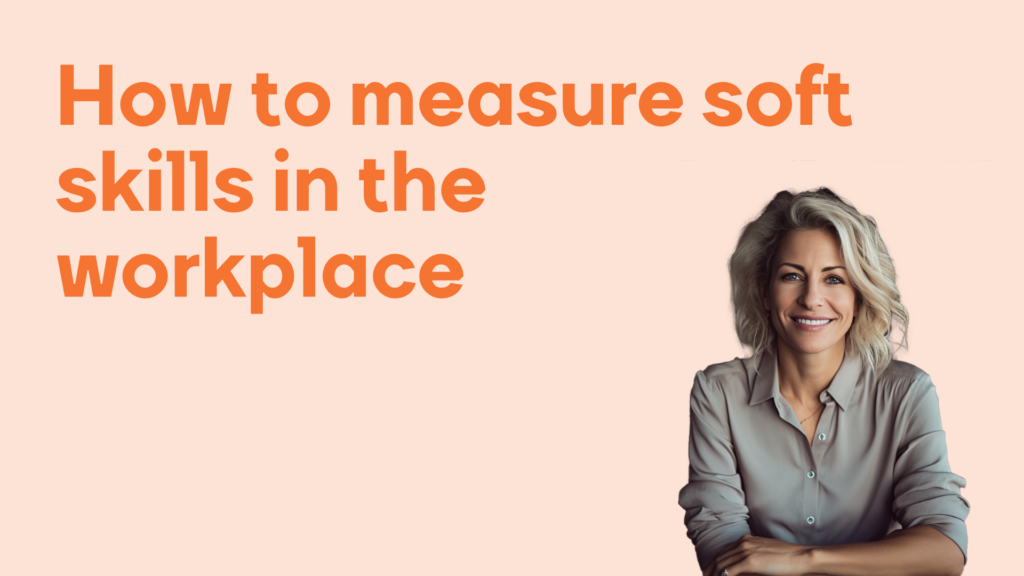In today’s rapidly evolving job market, the spotlight has shifted from traditional hard skills and CVs to more of a skills-first mindset.
These highly desired traits and competencies, deeply rooted in personality, influence how individuals navigate their personal and professional lives. Unlike their hard skill counterparts, which revolve around specific learned knowledge or technical abilities like coding or language proficiency, soft skills dwell in the abstract realm of human behaviour. But why should we care about them when it comes to recruitment? And is there any benefit to measuring them?

What are soft skills?
Soft skills are all competencies or characteristics that can be classified as personality traits or characteristics. These behaviours shape how you work with yourself and others, which guides your approach to life and work.
Unlike hard skills, where acquired knowledge dominates (e.g. coding or language skills), soft skills are thus more abstract and difficult to define. in that they belong to personality traits and social characteristics. Check out our ‘What are Soft Skills?‘ page to learn more.
Why do we measure soft skills?
Numerous research now shows that the labour market of the future will be dominated by so-called “soft skill intensive jobs”, i.e. jobs that require the employee to have the right personal characteristics and competencies. One recent survey by Deloitte showed that 63% of all jobs that require human labour will be soft skills-based within the next 10 years.
By measuring soft skills, we get a better measure of the candidate’s behavioural characteristics. These, unlike aspects such as education and experience, are difficult to assess during an interview. But at least as important, if not more so, to ensure a match.
By utilising soft skills across recruitment and development processes, organisations can achieve greater success at work. Ensuring every position is filled by people who match both the desired traits for the role, team and company culture leads to higher job performance and increased joy at work for employees.
Our scientifically designed model drives effective hiring decisions, improved job-performance, employee motivation and helps deliver greater organisational success across the board.
1) For Matching
Focusing on the traits and abilities that correlate with success in a specific role, industry or organisation.
2) For Selection
Comparing the final candidates objectively and highlighting any potential blind spots or de-railers.
3) For Interviews
Better hiring decisions through structured, strategic interviews and knowing what areas to focus on.
4) For Onboarding
Getting the most out of your new hires by utilising their strengths and preferences so they hit the ground running. Our Onboarding Report was designed specifically to help in this regard.
5) For Development
Development of your team members and business leaders. Understand what good looks like, who you’re hiring, who is likely to become your top performers and unearth potential future leaders.
How do you measure soft skills?
We measure soft skills with industry leading psychometric tests in the form of personality questionnaires, cognitive ability tests and situational judgement tests. With the help of Clevry’s assessment platform, we help recruiters to uncover your candidate’s strengths and motivational drivers.
This measurable, objective data gives us a better overall picture of the candidate’s suitability for the role in question. Combined with a structured interview, we get an overall evaluation of the candidate and can more easily ensure a good match with the company.
What is a ‘skills match’?
A ‘skills match’ is proof that the candidate has the right qualities to fit well in their role at your specific company. This means that we ensure that the candidate’s personal strengths and motivations match both the workplace culture and the requirements for the role. The soft skills matching acts as an aid to identify the most suitable candidates and shortens the selection process.
Do you want to know more about soft skills & how you can embed them into your recruitment and development processes? Drop us a message using the form below and one of the team will be happy to answer any questions you might have.



